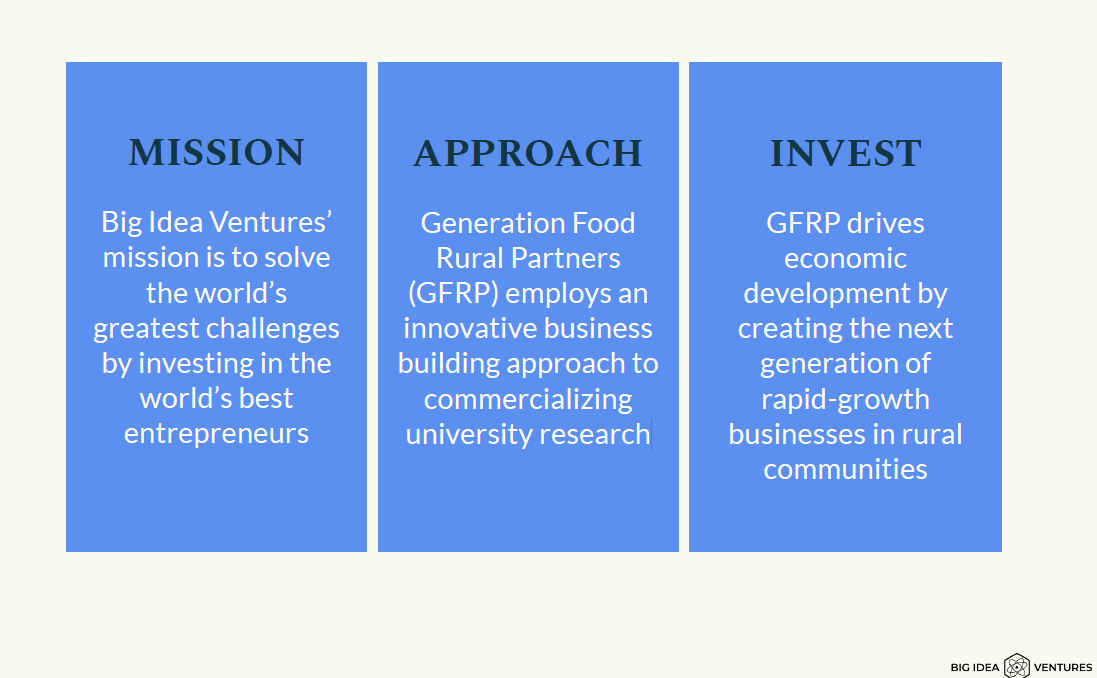
About a third of human-caused GHG emissions originate from the world’s agri-food systems, we have written a summary of the opportunities for decarbonization of the Agri-Food system and are looking for investment opportunities with quality stewardship. Thomas Mastrobuoni, CIO of Big Idea Ventures (BIV), shared sincerely about the agri-food tech ventures from his experience with BIV and Tyson Ventures in our investor panel on the Agri-Food system.
BIV, with offices in New York, Paris, and Singapore, is the world’s most active investor in FoodTech and AgTech, it has invested in more than 110 food tech startups. The company has contributed to the development of the growing alternative protein industry since its inception. They are involved in building companies from the early stage as a venture builder for startups. BIV is backed by a network of strategic partners including AAK, Avril, Bühler, Givaudan, Temasek Holdings, and Tyson Ventures, and is partnering with governments around the world working on food security and new food ecosystems.
Their latest fund is a new model, according to Thomas (lightly edited for clarity):
We call it the Generation Food Rural Partners Fund, or GFRP. This fund is very different than the new protein fund strategy. This fund works for solving problems in the supply chain for food and agriculture companies. So we will talk to the Nestle’s, Unilever, all the way down to a small stakeholder farmer, here in the States and in Europe. And we’ve built a data lake of problems that these folks are trying to solve, whether it’s around single-use plastics, scaffolding for cultivated proteins, replacement for petroleum-based adhesives. We map the universe of problems as well as we can. And then we work back to a pool of university-developed research and IP. And the goal is to start around 20 to 40, depending on how big the fund gets, but 20 to 40 new companies based on baskets of university IP, so not one patent, but multiple patents, coupled with experienced management teams to build companies to solve some of these problems that these companies are trying to face, which are the reasons why none of them are going to hit their GHG reduction goals in time.This fund is also a licensed RBIC fund. RBIC stands for Rural Business Investment Company. It’s a license issued by the USDA, very similar to SBIC funds. It’s a license that allows banks to invest in our fund (normally it’s forbidden for banks). Any other LP can invest in our fund. Typically banks cannot invest in private funds due to the Volcker rule, but SBIC licenses and RBIC licenses are exemptions to that. So we launched our fund with 10 farm credit banks.So if you’re a farmer in the US, you bank at farm credit, your mortgage is with them, your tractor leases are with them, etc. They have a mandate to drive economic growth and development in rural communities. And they do that with us by committing LP capital to our fund. And we spin up new companies, as I said, to solve these supply chain problems. And we put our new companies and the living wage jobs we create in rural communities to drive that economic growth and development. Our areas of focus are food, protein, and agriculture. We’re purposely broad.
The investor deck of the GFRP fund: https://docsend.com/view/d7xsu4evfc65grpn
If you’re interested in exploring participating in the GFRP fund, sign up to join the DD, or just follow updates here. This is our community service for investor collaboration only, with no solicitation of any offer for any investments. Check out their deck through here:
Join the evaluation or follow up
We interviewed Thomas Mastrobuoni, CIO of BIV on March 1st, 2024 (recording linked below). Before BIV, Thomas worked with Tyson Ventures for about 3 years, launching and running their corporate venture capital group. It was the first CVC group for Tyson with a $150 million mandate from the company to invest across both enabling technologies, but also disruptive technologies, which led to investments not only in things like rapid pathogen detection and direct-to-consumer platforms but in alternative proteins as well, both on the plant-based side and on the cultivated or cell-based side. His track record with Tyson Ventures is MOIC 4.3x IRR 69%, including Beyond Meat’s MOIC of 3.4x / IRR 76%. The team has accumulated impressive experience in venture building and investing.